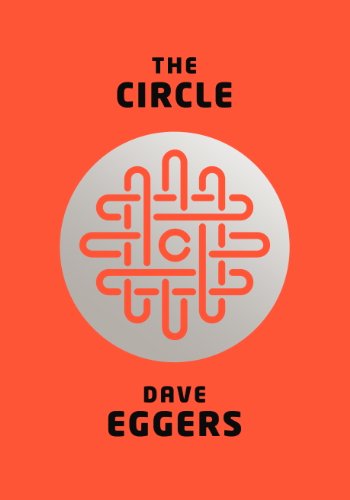Dave Eggers has written a dystopian novel and it’s a thriller. In The Circle, he tackles not only the increasingly terrifying reach of technology, but also our compulsion to constantly use it. Don’t get me wrong, compulsions can be good things. They are biological survival kicks that help us get what we need to keep going and to feel loved, safe, and happy. But what happens when our need for connection ricochets off of a bright touchscreen out into the digital ether?
Eggers’ seemingly effortless prose catapults us through almost 500 pages about a company called The Circle. It’s Google with a dash of Twitter and a pinch of Apple, in a Facebook reduction sauce. The Circle is self-contained: there are on-campus dorms where you’ll find food of every kind, a store where you can get anything you could ever need; and the finest health care in the world. Like moths to the flame, the Circlers (as they are called) take comfort in the glow. But at what cost?
The novel begins with twenty-something Mae Holland’s first day on the job. Work life at The Circle is invasive in every possible way, since Circlers are required to document and share their every thought and feeling (deletion of any kind is seen as a threat). As Mae rises through the ranks, she becomes one of the chosen few interacting with the leaders of The Circle, known as the Three Wise Men. However as Mae assimilates into the madness, the madness accelerates. The novel reaches its most Orwellian moment when Mae begins to perpetuate the company’s doctrine: PRIVACY IS THEFT. SECRETS ARE LIES. CARING IS SHARING.
The Circle is a page-turner that could have used some shaping and chopping. Still, the few passages you have to slog through aren’t enough to detract from its overall message. What makes us think we are so important that every thought, observation, and knee-jerk reaction is worth documenting? Are we ready to lose the comforts and benefits of privacy to alleviate loneliness at any cost?
What we’re dealing with here isn’t satire; instead, the novel confronts one of the most omnipresent issues today. In it, Eggers asks us to consider what will happen when we replace moments of self-reflection and solitude with an endless wave of meaningless content.![]()
